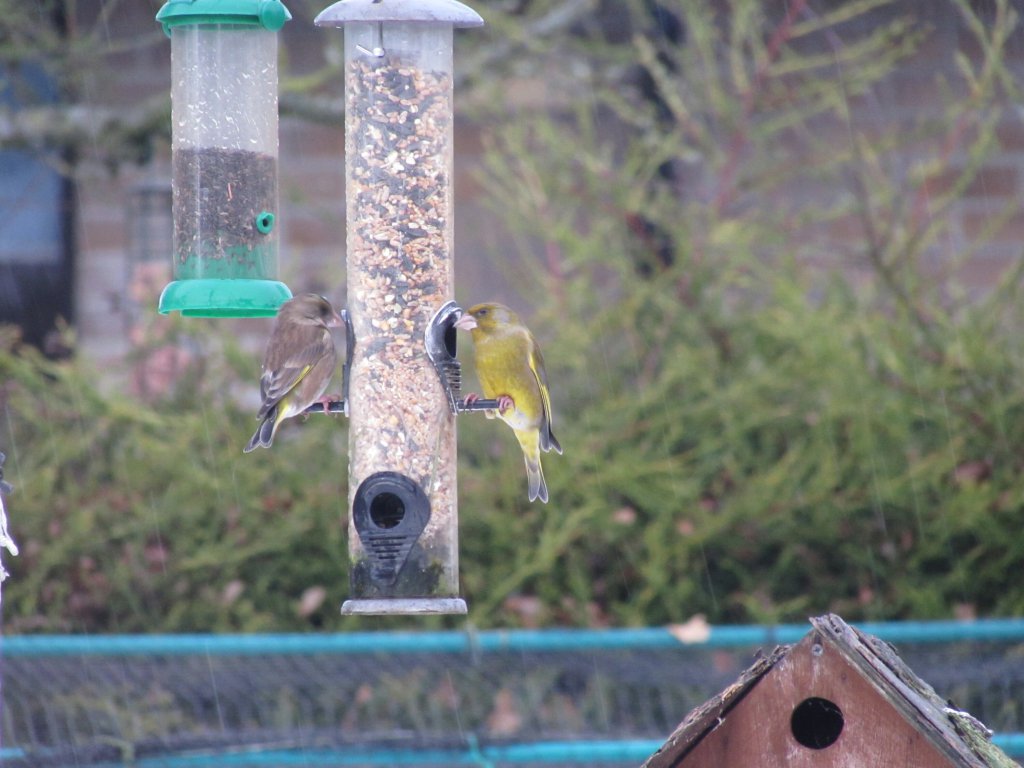Garden bird feeders spread disease, scientists warn
UK gardeners told to ‘be very vigilant - enjoy feeding the birds but educate yourself about what the risks are’

A free daily email with the biggest news stories of the day – and the best features from TheWeek.com
You are now subscribed
Your newsletter sign-up was successful
Scientists have warned of the risk of disease spreading through the use of bird feeders in British gardens.
A study by the Zoological Society of London, the British Trust for Ornithology (BTO), and Fera Science analysed more than 25 years of wild bird health data and found dramatic changes in some British bird populations, which scientists believe could have been caused by disease spread at bird feeding sites.
One parasite responsible for the disease trichomonosis in finches has caused a 35% drop in the population of breeding greenfinches in the UK, falling from 4.3m to 2.8m birds since the disease emerged in 2005.
The Week
Escape your echo chamber. Get the facts behind the news, plus analysis from multiple perspectives.

Sign up for The Week's Free Newsletters
From our morning news briefing to a weekly Good News Newsletter, get the best of The Week delivered directly to your inbox.
From our morning news briefing to a weekly Good News Newsletter, get the best of The Week delivered directly to your inbox.
“We’re calling on everyone who feeds wild birds to be aware of their responsibilities for preventing disease. Simple steps we’d recommend include offering a variety of food from accredited sources; feeding in moderation, so that feeders are typically emptied every one to two days; the regular cleaning of bird feeders; and rotation of feeding sites to avoid accumulation of waste food or bird droppings,” said Kate Risely, from BTO.
She told the BBC: “Be very vigilant - enjoy feeding the birds but educate yourself about what the risks are and what to do if you see signs of disease.”
Diseases can be spread through “droppings or regurgitated food around bird feeders”, says the BBC.
But gardeners in the UK “can combat the disease by regularly disinfecting feeders and feeding sites, and rotating the position of feeders in the garden”, says The Guardian.
A free daily email with the biggest news stories of the day – and the best features from TheWeek.com
Finding out more about the changing pattern of diseases will help to ensure that garden birds can be fed safely, say the researchers.
“Our study shows how three of the most common diseases that affect British garden birds have changed both dramatically and unpredictably over the past decade, both in terms of the species they affect and their patterns of occurrence,” said Dr Becki Lawson from ZSL's Institute of Zoology.
-
 The environmental cost of GLP-1s
The environmental cost of GLP-1sThe explainer Producing the drugs is a dirty process
-
 Greenland’s capital becomes ground zero for the country’s diplomatic straits
Greenland’s capital becomes ground zero for the country’s diplomatic straitsIN THE SPOTLIGHT A flurry of new consular activity in Nuuk shows how important Greenland has become to Europeans’ anxiety about American imperialism
-
 ‘This is something that happens all too often’
‘This is something that happens all too often’Instant Opinion Opinion, comment and editorials of the day